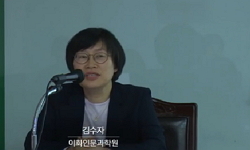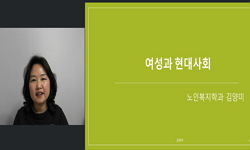This study discusses female and sexual issues in novels at the time of Korean liberation from Japanese rule. It is highly significant that issues of `sexuality`, a comprehensive term for sex related with sexual behaviour, sexual phenomenon, sexual des...
http://chineseinput.net/에서 pinyin(병음)방식으로 중국어를 변환할 수 있습니다.
변환된 중국어를 복사하여 사용하시면 됩니다.
- 中文 을 입력하시려면 zhongwen을 입력하시고 space를누르시면됩니다.
- 北京 을 입력하시려면 beijing을 입력하시고 space를 누르시면 됩니다.

성애(性愛)의 시대, 여성 주체와 섹슈얼리티 ―해방공간의 성담론(性談論) 시고(試考) = Age of Sexual Love, Female Subject and Sexuality ―essay on Sexual Discourses in Korean Liberation
한글로보기https://www.riss.kr/link?id=A102921857
- 저자
- 발행기관
- 학술지명
- 권호사항
-
발행연도
2005
-
작성언어
-
-
주제어
해방공간 ; 여성 ; 섹슈얼리티 ; 주체화 ; 모성 이데올로기 ; 가족제도 ; 육체 ; 경제성 ; 변동기 ; 담론 ; 해체 ; liberation ; female ; sexuality ; subjectivity ; maternity ideology ; family institution ; physical body ; economical efficiency ; changing era ; discourse ; deconstruction
-
KDC
800
-
등재정보
KCI등재
-
자료형태
학술저널
- 발행기관 URL
-
수록면
293-321(29쪽)
- 제공처
-
0
상세조회 -
0
다운로드
부가정보
다국어 초록 (Multilingual Abstract)
This study discusses female and sexual issues in novels at the time of Korean liberation from Japanese rule. It is highly significant that issues of `sexuality`, a comprehensive term for sex related with sexual behaviour, sexual phenomenon, sexual desire or sexual instinct, were widely embodied in literary discourse, especially, in times of liberation. `Female` who was examined within social and literary discourse at that time was shown with a transient mode, in order to position herself with a status either for dependence or autonomous subjectivity. However, the result of analyzing actual literary works proved that a female subject was evaluated as a whole subject through sexuality. Sexuality of female subject, that is sex, in times of liberation, was combining romantic, maternal, pleasurable and economic desires in a manner of `gradual expansion`, and approaching to a `genuine sex(or subjectivity)` of female, which was internalized within the society she belonged to. This is radical enough to be defined as `aberration` and `progressiveness`. To examine implications of such a phenomenon, female subjects harshly resisted against dualism of Chosun male whose interest was on great causes of liberation from Japanese oppression and of nation building, and whose hypocritical domination over female was imposed within patriarchal hierarchy. Female subjects resisted rather on these male subjects than on Japanese oppression, because males kept suppressing females after losing the country when they were practically in charge of it. Females hoped for a resolution of their suppressed history, to a certain extent, by abandoning the vanity of romantic love, and by using one`s body for economic gain. The fact that female as a beneficiary of economic profit from prostitution excluded male as `the other`, isolated or completely removed them, is an indication that potential outrage of the suppressed female was great. Ultimately, female subjects in times of liberation escaped from male-centered authoritarianism, dissolved family institution and weakened maternity ideology, by `strengthening` their sexuality, therefore they pioneered to cooperate with one another voluntarily and with solidarity, showing harsh antagonism against Chosun males who were helpless or coward to have a will to post-colonial future against Japanese colonial system. If it can be said that a female was made into `the other` in the `age of romantic love`, it can also be said that a male was made into `the other` in the `age of sexual love`. This is one of the characteristics in Korean society. Such attribute can always reappear as a form of oppressive power depending on progressive aspects of life, or as another form of resistance discourse depending on a `will to knowledge`.
동일학술지(권/호) 다른 논문
-
초등학생의 의사소통 유형별 실태 조사 ―친교 대화, 발표, 토론/토의를 중심으로
- 국제어문학회
- 김정선 ( Kim Jung-sun )
- 2005
- KCI등재
-
요청 방식에 따른 초등학생의 의사소통 유형 분포와 갈등 경험 실태에 관한 연구
- 국제어문학회
- 김태경 ( Kim Tae-kyung )
- 2005
- KCI등재
-
연결어미 호응 부사의 사용 양상과 한국어 교육 ―연령별 구어 자료를 중심으로
- 국제어문학회
- 임유종 ( Im Yoo-jong )
- 2005
- KCI등재
-
- 국제어문학회
- 홍윤기 ( Hong Yun-ki )
- 2005
- KCI등재




 KISS
KISS






